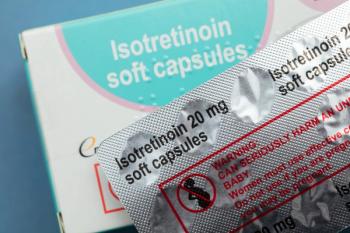
Researchers Develop Blood Test for Depression Severity, Bipolar Disorder
This study, published in Molecular Psychiatry, builds off of previous research into biomarkers for tracking suicidality, post-traumatic stress disorder, and Alzheimer disease, according to the authors.
A new study has found a novel biological basis for mood disorders, allowing researchers to develop a blood test for depression and bipolar disorder aimed at a precision medicine approach to treatment. This study, published in Molecular Psychiatry, builds off of previous research into biomarkers for tracking suicidality, post-traumatic stress disorder, and Alzheimer disease, according to the authors.
“Through this work, we wanted to develop blood tests for depression and for bipolar disorder, to distinguish between the 2, and to match people to the right treatments,” said Alexander B. Niculescu, MD, PhD, professor of psychiatry at IU School of Medicine, in a press release. “Blood biomarkers are emerging as important tools in disorders where subjective self-report by an individual, or a clinical impression of a health care professional, are not always reliable. These blood tests can open the door to precise, personalized matching with medications, and objective monitoring of response to treatment.”
The study was conducted over the course of 4 years and followed 300 participants. Researchers first observed these individuals in both high and low mood states and recorded changes in biomarkers in their blood between these 2 states. These results were cross-validated with large databases developed from all previous studies in the field to allow the researchers to prioritize their findings.
The top 26 candidate biomarkers were then validated in independent cohorts of clinically severe people with depression or mania, before testing in additional independent cohorts to determine their strength in predicting who is currently ill and who will become ill in the future.
The researchers developed a blood test for RNA biomarkers that can indicate the severity of a patient’s depression, their risk for developing severe depression in the future, and the risk of future bipolar disorder. They were then able to demonstrate how to match patients with medications based on these tests and found a new potential medication for the treatment of depression, according to the study.
“Blood biomarkers offer real-world clinical practice advantages,” Niculescu said in the release. “The brain cannot be easily biopsied in live individuals, so we've worked hard over the years to identify blood biomarkers for neuropsychiatric disorders. Given the fact that 1 in 4 people will have a clinical mood disorder episode in their lifetime, the need for and importance of efforts such as ours cannot be overstated.”
In addition to the diagnostic and therapeutic findings, the research team found that mood disorders are underlined by circadian clock genes, which regulate seasonal, day-night, and sleep-wake cycles. This could explain why certain patients get worse with seasonal changes, according to Niculescu.
REFERENCE
IU School of Medicine researchers develop blood test for depression, bipolar disorder [news release]. EurekAlert; April 8, 2021. Accessed April 9, 2021.
Newsletter
Stay informed on drug updates, treatment guidelines, and pharmacy practice trends—subscribe to Pharmacy Times for weekly clinical insights.







































